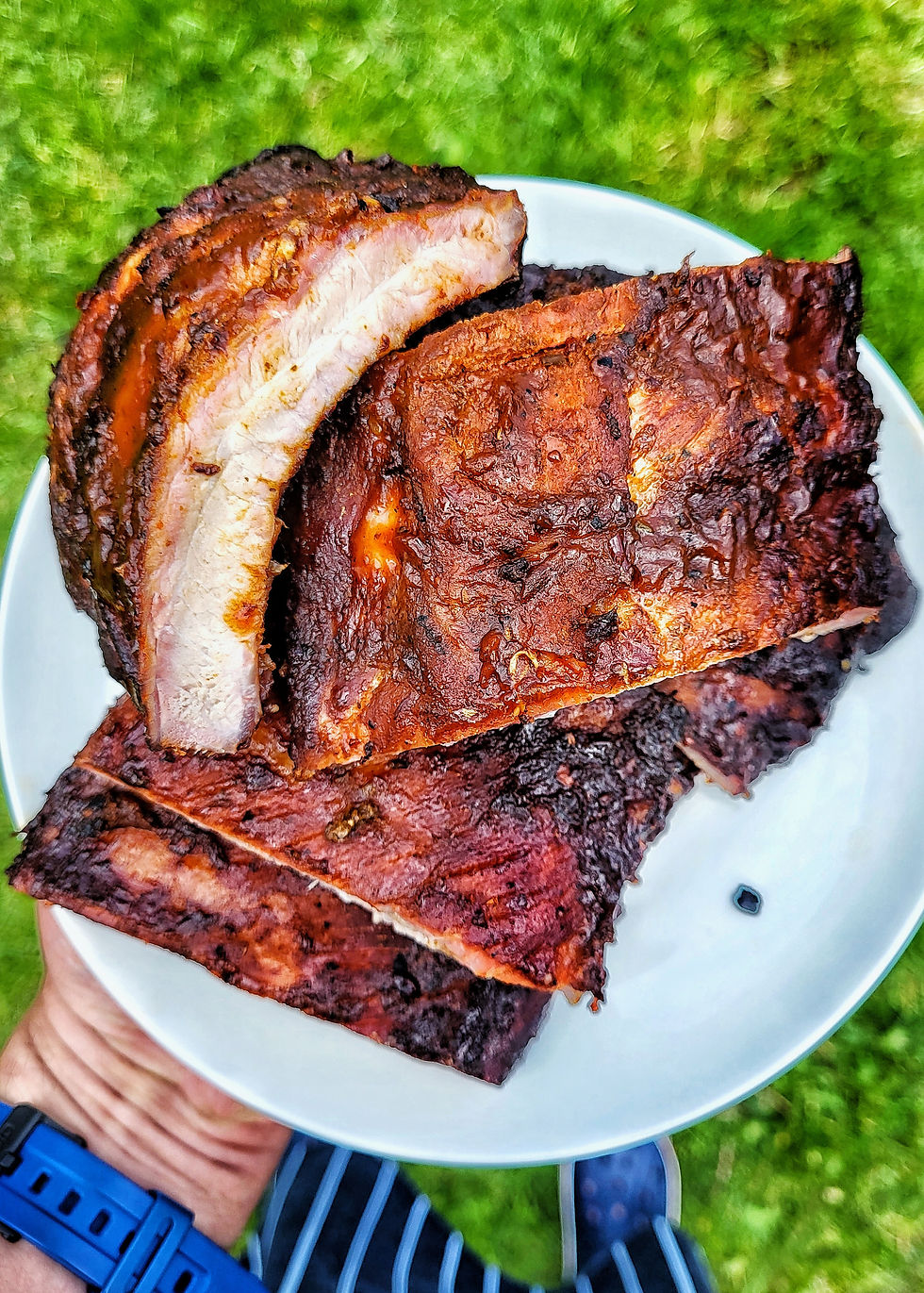If it ain't cooked with wood - it ain't BBQ
- Richard - The Southern Kitchen
- Mar 2, 2023
- 4 min read
Dear Balham & Tooting Foodies,
I hope all is good and that you have been eating well since we last wrote. Whilst we’ve not being cooking much since Christmas, things have been busy planning for the summer, and we’ve got lots already in the diary for the coming months. We’re really looking forward to getting back into the kitchen and cooking up some treats, and have some exciting dates in the diary……………
💥 Next weekend - 10th – 12th March – Spring BBQ Takeaway special – check the menu out here!
💥 From Mid March - 19th March – 30th April – King & Co, Clapham - pub residency serving our bangin’ burgers and weekend specials, everyday except Sundays.

It’s been a cold few months, but we have been lucky to have some nice sunny days. It’s got us dreaming of the summer, and hankering for some of our BBQ, and with spring on our doorstep we’re ready to break out the smoker and get our smoke on! It’s also got us thinking about the origins of BBQ and where it all came from.
People have been cooking food over open fire since, well, since cavemen discovered man’s red flower. Over time, the method of cooking over an open flame has evolved, and the art of BBQ as we know it today emerged. We see live fire cooking in many different cultures, from South African Braai’s, Argentinan Asado and even Indian Tandoors. All are very tasty, but American Bar-B-Q stands out above the rest, with it smoky, sultry, savoury flavours. Where as most other open fire cooking cultures rely on high direct heat, American barbecue is slow and low, bathed by smoke. Mammoth day-long cook-out sessions require skill, guile and patience to coax the best flavour out of tougher, cheaper cuts of meat over that smoky indirect heat. To the American BBQ aficionado, if it ain't cooked with wood; it ain’t barbecue. It’s the purists choice; the rest, sorry folks, are just ”grilling”.

With origins that can be traced back to indigenous peoples and early settlers in the Americas, the earliest forms of barbecue can be traced back to the Taino people, where meats were slow-cooked over sticks and saplings; this cooking style was known as “barbacoa”, whether this was what the natives refered to it as, or a name that was given by Spanish conquistadors is unclear, but is the root of the modern word today. In a time before refrigeration, this way of cooking was a way to preserve meats; you can see the echo of this cooking style in dried meat “jerky” and Jamaican“jerk”, where meats were dried out or spiced with citrus and spicy peppers respectively.

As time progressed, the word “barbecue”, came to specifically refer to slow cooked meats over indirect heat cooked with wood. African-Americans would adapt their cooking techniques to make use of what resources were available locally; in North Carolina, pigs and hickory were abundant, and, controversially to some still, in Texas, cows and mesquite thus helping to create and cement various regional styles. Techniques were mixed with other influences from colonial arrivals; the use of a basting sauce over meat from the British in Virginia & North Carolina, and mustard from French & Germans in South Carolina. The use of plentiful vinegar also replaced the use of citrus to provide tang.


Barbecue played a significant role in American history. During the Civil War, soldiers on both sides would cook meat over open fires, creating a sense of camaraderie among the troops. After the war, African American pit masters became an important part of Southern communities, with many opening their own barbecue restaurants, not only becoming focal points for the community, but also a key part of its economy. In the Jim Crow South, BBQ joints were often one of the few places that different races mixed despite segregation. Thus, barbecue also played a role in the Civil Rights Movement, with many African American leaders using it as a way to bring people together and promote unity.

More recently, barbecue has experienced a resurgence in popularity. It has become a social event, with people coming together to cook and eat. It’s a way to feed a large number of people something tasty at once, becoming popular at political rallies or church picnics, and the tradition of "pig pickin'" – where a whole pig is slow-cooked over a pit and then picked apart by hand – became a popular way to celebrate special occasions. Restaurants and food trucks specializing in the cooking method have popped up all over the US. Barbecue competitions and festivals have become popular, with people from all over the world coming together to sample different styles of barbecue and celebrate this beloved cooking method.

Barbecue has its roots in indigenous and African American cultures, and has shifted with time, embracing the influences it comes across to make the delicious dishes we make today. It has become an integral part of American culture as a whole, particularly in the South, and is as American as Momma's Apple Pie!




Comments